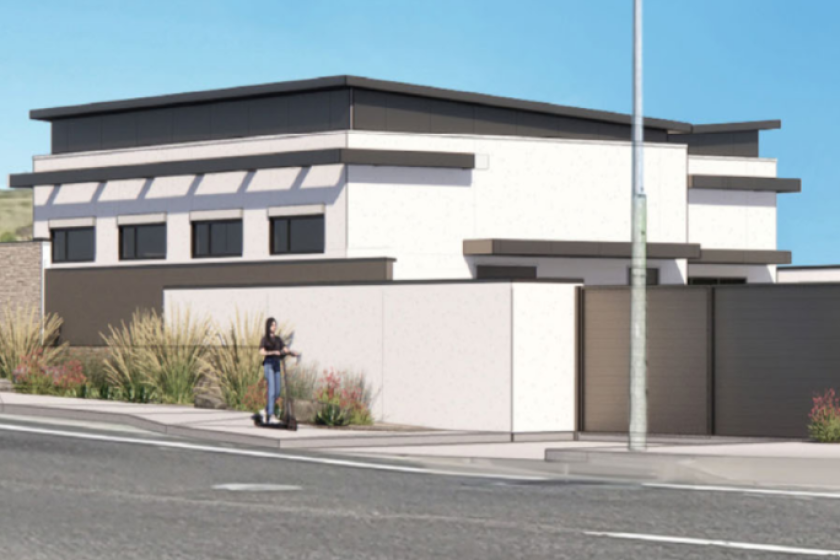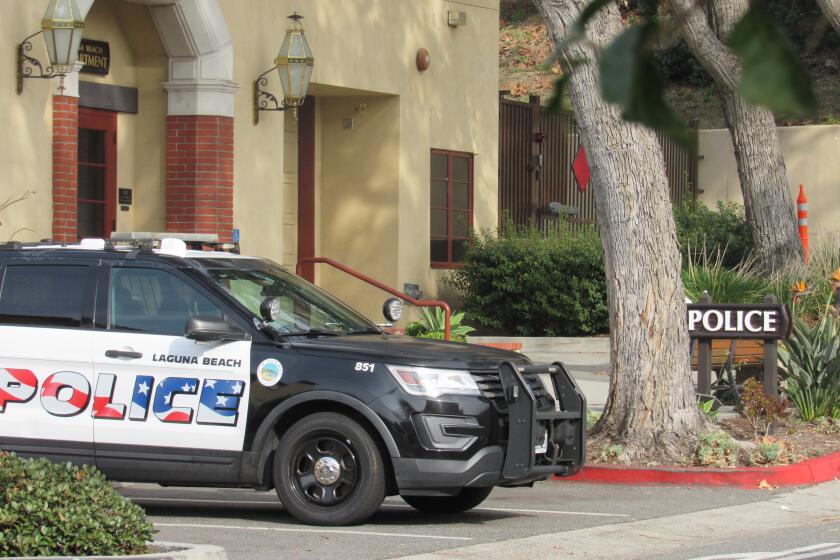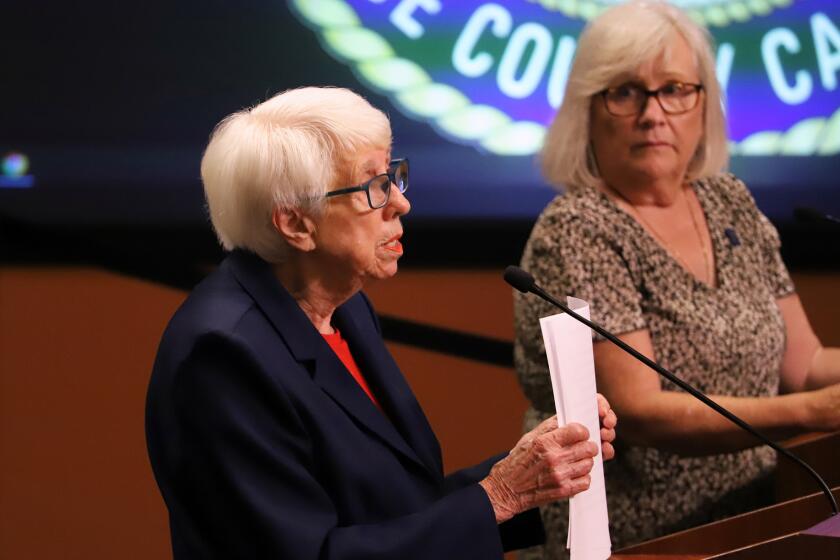Huntington Beach denies it is ‘anti-housing’ after group sues over rejection of 48-unit project
Huntington Beach’s city attorney is disputing a nonprofit organization’s claims in a lawsuit alleging that the city rejected a 48-unit residential project planned for Ellis Avenue because of complaints by nearby residents, even though the proposal complied with zoning laws.
Californians for Homeownership said the lawsuit, filed Monday, is its first under the state’s Housing Accountability Act, also known as the anti-NIMBY law, referring to the acronym for “Not in my backyard.” The law is designed to prevent cities from denying housing projects that comply with zoning rules.
“Huntington Beach put the anti-housing views of its residents over the region’s urgent need for more housing, rejecting a project that would have helped 48 families realize their dreams of California homeownership,” said Californians for Homeownership President Jared Martin.
“Cities like Huntington Beach need to understand that there are consequences for violating state housing law.”
City Attorney Michael Gates said the lawsuit “mischaracterizes Huntington Beach” as being opposed to affordable housing.
“The city’s decision to decline or deny the 48-unit project had nothing to do with the anti-NIMBY act,” Gates said. “The decision was made by the council because it was a very tall project in a very small space and based on public health and safety, including emergency access and other related issues.”
Gates said the city has granted permits and zoning to 3,000 new housing units since 2013, “far more than any of our neighbors in the region.”
Of the 3,000 new units, 900 were for affordable housing,” he said.
“So not only did the city do its job, developers have stepped up to develop,” Gates said.
The project at issue is a residential-commercial project that sought to develop 48 residential units and a coffee shop in a four-story building, with five units set aside for affordable housing. The plan was to demolish a liquor store, a residence and a portion of a defunct car wash lot on just under an acre at 8041 Ellis Ave., near Beach Boulevard. The site shares its eastern property line with duplexes and other low-density housing.
The City Council unanimously denied the project Sept. 3, upholding the Planning Commission’s denial in June. The matter went to the council on appeal by developer Tahir Salim.
The council cited traffic safety as its main reason for denying the 48-unit project. A similar issue was raised earlier by the city Planning Commission.
Council members cited traffic safety as their main reason for the rejection. That issue was cited by the Planning Commission, which also said the development would be incompatible with adjacent buildings.
Dozens of residents urged the council to deny the project in letters or public comments, saying it would increase traffic congestion and risk of accidents and that the project was too massive for the property.
However, Salim saw his proposal as beneficial to the city because it would beautify an area frequented by homeless people and provide more affordable housing. Salim originally planned to sell the units as condominiums, but he told planning commissioners during a meeting in May that some could be rented as apartments.
Though the council mainly discussed traffic as its reason for denying the project, its vote highlighted the city’s ongoing attempt to retain its beach town aesthetic. Salim’s development could have helped the city meet the state’s rules for low-income housing because it falls within the city’s Beach Boulevard and Edinger Avenue corridors, an area that doesn’t meet the current requirements.
In January, California sued Huntington Beach over what state officials called the city’s failure to allow enough homebuilding to accommodate a growing population. The case is continuing after a Los Angeles County Superior Court judge in August denied the city’s request to dismiss the lawsuit.
“The complaints from neighbors and the Planning Commission weren’t focused on the specifics of this project but on the very idea of allowing more people to live along Ellis Avenue, even though that’s exactly where the city is telling developers to build,” said Matthew Gelfand, attorney for Californians for Homeownership.
“At the end of the day, the Planning Commission came up with vague reasons that could be used to deny any zoning-compliant housing development on the site. The city’s findings are internally inconsistent and don’t pass the most basic smell test, let alone the high bar set by the Housing Accountability Act.”
Daily Pilot staff contributed to this report.
All the latest on Orange County from Orange County.
Get our free TimesOC newsletter.
You may occasionally receive promotional content from the Daily Pilot.



